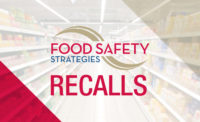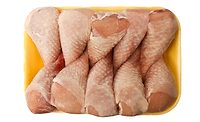The U.S. Food and Drug Administration (FDA) will release a new prevention strategy aimed at reducing foodborne listeriosis cases and outbreaks associated with the consumption of fresh, soft Queso Fresco-type (QFT) cheeses, and has provided a summary of the upcoming document.
During 2014–2017, FDA’s Coordinated Outbreak Response and Evaluation (CORE) network investigated five listeriosis outbreaks linked to the consumption of fresh, soft QFT cheeses. Most recently, in 2021 CORE investigated an outbreak linked to fresh, soft cheeses that sickened 13 people. Historically, outbreaks associated with QFT cheeses have been associated with unpasteurized milk; however, recent investigations have also linked listeriosis outbreaks to QFT cheeses made from pasteurized milk that was contaminated during the cheese making process. In the February/March 2023 issue of Food Safety Magazine, officials from FDA and the U.S. Centers for Disease Control and Prevention (CDC) provide an in-depth analysis of recent notable listeriosis outbreaks linked to fresh, soft QFT cheeses in the U.S.
FDA’s new prevention strategy reflects a review of outbreak findings, historical data, and stakeholder engagement to identify public health interventions that can be taken to reduce future incidences of foodborne illness linked to QFT cheeses. As part of the prevention strategy, FDA also released a fact sheet to help manufacturers of fresh, soft QFT cheeses better understand the food safety risks the can occur during production. The fact sheet also identifies food safety resources available to manufacturers.
Measures outlined by FDA that can be taken to reduce future incidences of foodborne illness related to fresh, soft QFT cheeses include:
- Prioritizing inspections with environmental sampling at fresh, soft QFT manufacturing firms
- Engaging with state partners to increase sampling of QFT cheese at retail operations in the U.S. for the presence of Listeria monocytogenes
- Developing and distributing a publication that outlines the potential causes of recent listeriosis outbreaks in soft cheeses and a fact sheet that describes requirements for Listeria control in cheese manufacturing
- Collaborating with states and other food safety partners to disseminate training and education materials to producers and consumers of soft fresh QFT.
By implementing such activities, FDA hopes to increase industry awareness of and compliance with regulatory requirements for the production on QFT cheeses, as well as to verify through inspections and sampling that producers of QFT are adhering to food safety requirements.
FDA prevention strategies are affirmative, deliberate approaches undertaken by the FDA and stakeholders to help limit or prevent future outbreaks linked to certain FDA-regulated foods, as part of the agency’s Foodborne Outbreak Response Improvement Plan under the New Era of Smarter Food Safety initiative. Previously released strategies include those for imported enoki and wood ear mushrooms, bulb onions, and powdered infant formula. In October 2022, Stephen Hughes, Prevention Coordinator within FDA’s Center for Food Safety and Applied Nutrition (CFSAN), and Jennifer McEntire, Ph.D., the previous Chief Food Safety and Regulatory Officer at the International Fresh Produce Association, joined the Food Safety Matters podcast to discuss FDA’s commodity-specific prevention strategies at length.




